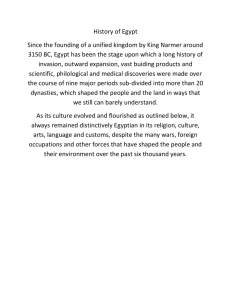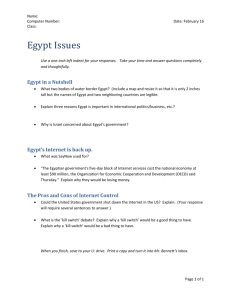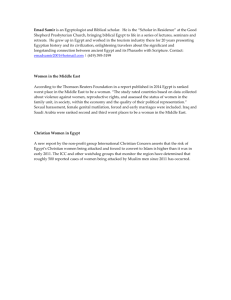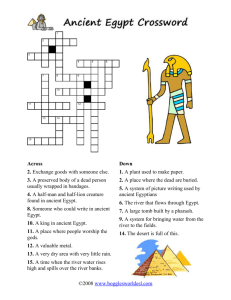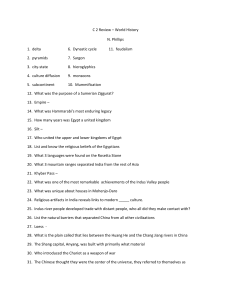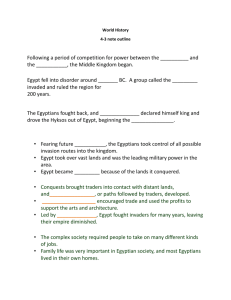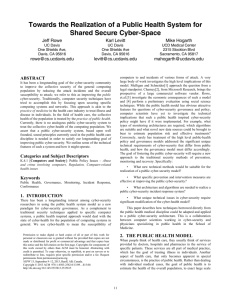Egypt`s Position on Internet Governance
advertisement
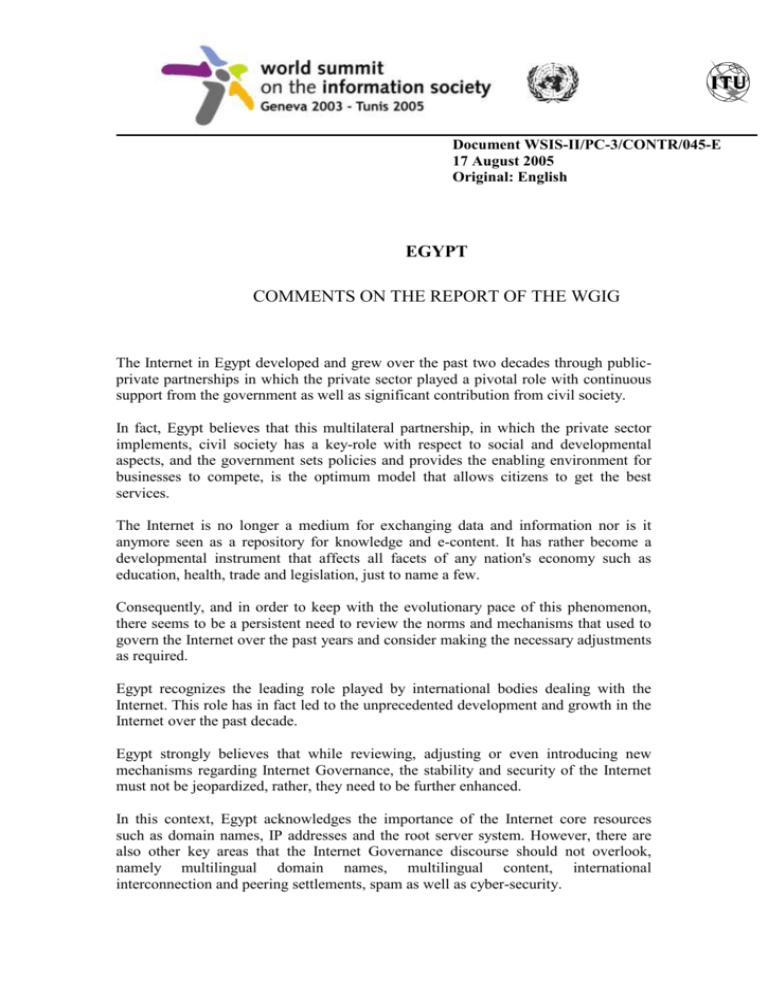
Document WSIS-II/PC-3/CONTR/045-E 17 August 2005 Original: English EGYPT COMMENTS ON THE REPORT OF THE WGIG The Internet in Egypt developed and grew over the past two decades through publicprivate partnerships in which the private sector played a pivotal role with continuous support from the government as well as significant contribution from civil society. In fact, Egypt believes that this multilateral partnership, in which the private sector implements, civil society has a key-role with respect to social and developmental aspects, and the government sets policies and provides the enabling environment for businesses to compete, is the optimum model that allows citizens to get the best services. The Internet is no longer a medium for exchanging data and information nor is it anymore seen as a repository for knowledge and e-content. It has rather become a developmental instrument that affects all facets of any nation's economy such as education, health, trade and legislation, just to name a few. Consequently, and in order to keep with the evolutionary pace of this phenomenon, there seems to be a persistent need to review the norms and mechanisms that used to govern the Internet over the past years and consider making the necessary adjustments as required. Egypt recognizes the leading role played by international bodies dealing with the Internet. This role has in fact led to the unprecedented development and growth in the Internet over the past decade. Egypt strongly believes that while reviewing, adjusting or even introducing new mechanisms regarding Internet Governance, the stability and security of the Internet must not be jeopardized, rather, they need to be further enhanced. In this context, Egypt acknowledges the importance of the Internet core resources such as domain names, IP addresses and the root server system. However, there are also other key areas that the Internet Governance discourse should not overlook, namely multilingual domain names, multilingual content, international interconnection and peering settlements, spam as well as cyber-security. Regarding Internet technical standards and relevant policies, Egypt recognizes the contribution made by existing international bodies and supports the continuation of their role. On the other hand, there are areas that are not adequately addressed by the existing organizations such as spam, cyber-security, cyber-crime and multilingualism. Therefore, Egypt advocates either the creation of new forum(s) where such issues can be thoroughly discussed or that the existing entities spin-off new groups to be more focused on particular areas. Egypt also respects the sovereign rights of states as regards international Internetrelated public policy issues. Accordingly, Egypt encourages the creation of a highlevel multi-stakeholder board of trustees that has a more legitimate international mandate as far as Internet public policy issues are concerned. Last but not least, Egypt perceives the Internet Governance debate more as a continuous dialogue which should involve the participation of all stakeholders from developing and developed countries, and should seriously take into consideration the dynamism and future development of the Internet.


